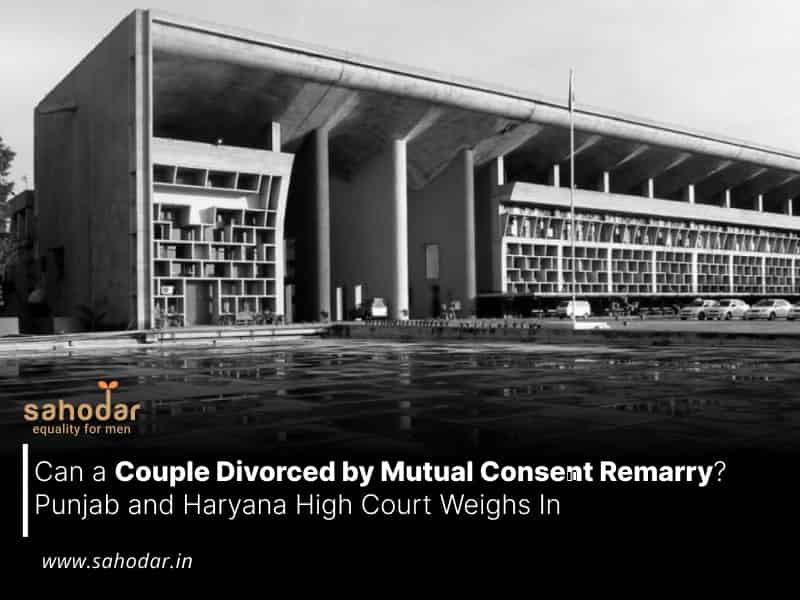The Court said that appealing against such divorce decrees would undermine the court’s authority, make a mockery of its verdict and amount to contempt of court and perjury.
The Punjab and Haryana High Court recently decided that a couple who have divorced by mutual consent under the Hindu Marriage Act cannot later contest the decree on the grounds that they wish to reunite as husband and wife.
A bench consisting of Justices Sureshwar Thakur and Sudeepti Sharma stated that such actions would undermine the court’s authority, make a mockery of its decision, and constitute contempt of court and perjury.
“Permitting parties to subsequently retract their sworn statements and assert a desire to reconcile, by stating that they have realised their mistake and now they want to live together, would amount/constitute Contempt of Court and perjury,” the Court said further.
The Court noted that these couples can get married to each other again, as the Hindu Marriage Act does not prevent divorced couples from remarrying.
The High Court was reviewing an appeal from a couple who divorced by mutual consent in November 2023. The mother was given custody of their young daughter.
The couple, married since November 2016, had been living apart since December 2021. After their divorce, they told the court that they had “realized their mistake” and wanted to get back together for their child’s well-being. They asked the court to cancel the divorce decree.
The High Court looked into whether an appeal against a mutual consent divorce under Section 13-B of the Hindu Marriage Act could be allowed under Section 28, considering the rules in the Code of Civil Procedure (CPC).
After reviewing the laws, the Court pointed out that Section 28A of the Hindu Marriage Act allows all decrees under the Act to be appealed. It also mentioned that the process and rules for filing and handling such appeals are outlined in the CPC.
Against this background, the Court stated that since Section 96(3) of the CPC prohibits appeals against consent decrees, a divorce granted by mutual consent cannot be challenged.
“Since there is a bar under Section 96(3) of CPC that no appeal shall lie from decree passed by the Court with the consent of the parties. Therefore, no appeal shall lie from decree passed by the Court with the consent of the parties under Section 13-B of the Act. Appeal under Section 13-B would be maintainable only on the ground that the consent was obtained by force, fraud or undue influence,” it concluded.
Accordingly, the Court dismissed the appeal.
Advocate Rahul Aggarwal represented the couple.

